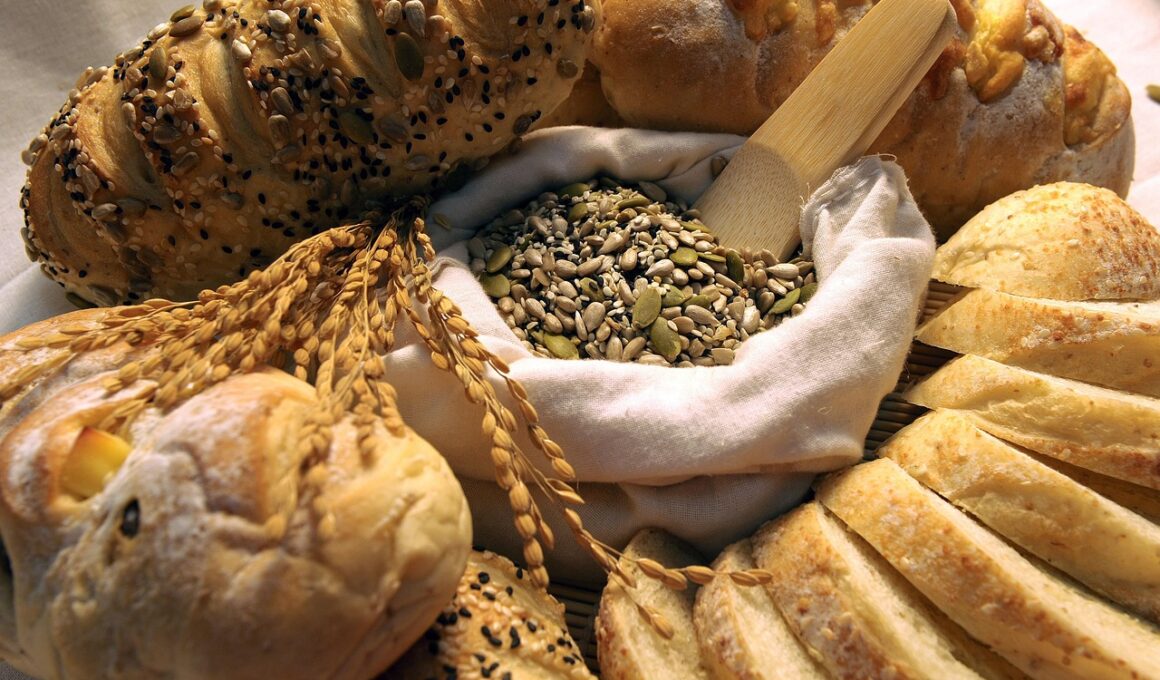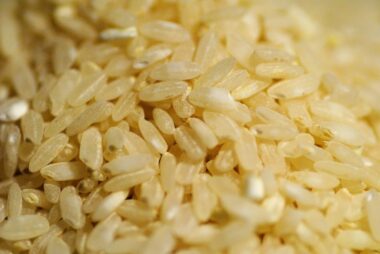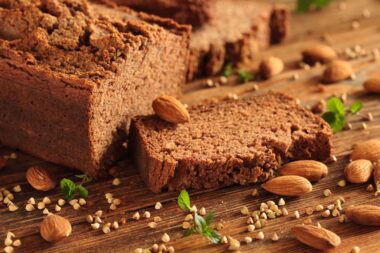Is Eating Carbs at Night Bad for You? Experts Weigh In
The notion that consuming carbohydrates late at night yields negative impacts on health and weight control is pervasive. Many people believe this myth, associating nighttime carb consumption with weight gain. However, experts emphasize understanding how our bodies process foods more than simply timing. Carbohydrates provide necessary energy, especially in the evening after a long day. In fact, choosing the right type of carbohydrates can contribute positively to your overall health. Complex carbohydrates such as whole grains, legumes, and vegetables are beneficial, especially when combined with lean proteins and healthy fats. This balanced approach promotes a feeling of satisfaction, possibly preventing late-night snacking. While some believe that eating late may lead to pantry raids, the focus should be on what you eat rather than when you eat. Proper portion sizes and choosing nutritious sources remain key, making high-quality carbs essential at any time of the day. The true danger may lie in processed and sugary snacks enjoyed during late-night hours. Mindful eating habits can assist individuals in making better choices anytime.
Experts assert that the timing of carbohydrate consumption is less essential than the overall balance of your meals. Meals should include a variety of nutrients, which aid metabolism and digestion. Carbohydrates consumed at night can serve meaningful roles, such as replenishing glycogen stores after physical activity or supporting restful sleep. As a result, your nighttime meals should ideally emphasize nutrient-dense options. Studies suggest carb-rich foods such as whole grain pasta, quinoa, or brown rice can encourage a sense of fullness and support muscle recovery. Additionally, foods like sweet potatoes and oats are effective choices too. Your unique lifestyle should inform carbohydrate consumption habits. If you find late-night carbs contribute to unwanted cravings, this insight can guide your adjustments. Nevertheless, if exercised in moderation with a focus on nutrient density, nighttime carbs can be part of a healthy routine. On the other hand, if you consistently experience digestive discomfort at night, it may be worth evaluating your carbohydrate sources. Understanding how your body responds to different foods becomes imperative in establishing lasting dietary habits. Keeping carb quality in mind aids in maintaining good nutritional health.
Many people question whether consuming carbohydrates late at night might interfere with weight management or body composition. Experts explain that the total caloric intake throughout the day influences these concerns more significantly than meal timing. If your total calorie consumption aligns with your energy needs, eating carbs at night will not inherently cause weight gain. Instead, it becomes vital to pay attention to sugar-filled snacks typically consumed during late-night cravings, leading to excess calorie intake. Practical strategies include substituting high-calorie treats with healthier options. For example, satisfying evening snacks can consist of Greek yogurt with fruit, making a wholesome choice. Keeping portion control and balance fosters a healthier relationship with food. Recognizing emotional cues that trigger eating during the evening can also lead to valuable changes. Tracking what and when you eat can empower you to make informed adjustments. Additionally, food quality impacts how satisfying your meals are, ensuring you choose complex rather than simple carbohydrates. When you maintain nutritious habits while being mindful of cravings and portion sizes, nighttime carb consumption can coexist with your weight management goals.
The Role of Carbohydrates in Sleep Quality
Carbohydrates, specifically those higher in fiber, can positively influence sleep quality and overall well-being. Eating these foods in moderation may help regulate sleep patterns. Carbs trigger the release of serotonin, a neurotransmitter that promotes relaxation and prepares the body for rest. For individuals seeking improved sleep behavior, including complex carbs in your evening meal could facilitate a late-night winddown. Incorporating foods such as whole grain cereals, legumes, and certain fruits can cement a nourishing and comforting nighttime routine. Moreover, pairing carbs with protein such as eggs or turkey may elevate overall satisfaction and assistance in overnight recovery. On the contrary, avoidance of refined sugars in late-night snacks is recommended since they can cause sleep disturbances through blood sugar spikes. Research highlights an essential connection between diet, sleep quality, and next-day cognitive performance, unveiling the interplay between nighttime nutrition and lifestyle outcomes. In essence, prioritizing healthy carbohydrates with protein-rich counterparts ensures meals remain enriching while enhancing sleep. Through balanced evening meals, individuals can celebrate restorative sleep, unlocking energy essentials for the next day.
The truth behind the belief that nighttime carbohydrates lead to weight gain is more nuanced than outright bans. When considering nutritional habits holistically, all food, including carbohydrates, should have their places and quantities assessed based on individual goals and preferences. Rather than categorically eliminating foods deemed ‘bad,’ understanding the role they play can foster informed choices. An inclusive approach to nutrition encourages consuming the full spectrum of macronutrients while appreciating its benefits. This helps assuage potential guilt, allowing individuals to tarry freely regarding what they eat. Awareness and education regarding carbohydrate types are crucial; wholesome grains, fruits, and vegetables bring health benefits irrelevant to calorie counts. Eating sensible portions throughout various day parts assists in maintaining energy levels without sabotaging goals. For instance, enjoying a satisfying evening meal that balances nutrient composition honors the human experience without creating stress or worry regarding food choices. This level of comfort ultimately empowers individuals to navigate late-night cravings without succumbing to unhealthy options. Accepting a diverse range of foods nourishes body and mind, fostering long-term well-being.
Making Smart Carb Choices at Night
So, what does the right approach to nighttime carb consumption look like? Planning meals with attention to balanced macronutrients allows holistic satisfaction while promoting proper digestion. An excellent strategy involves preparing nutritious recipes that are easy to enjoy without excessive preparation. Consider overnight oats prepared with natural sweeteners, oats, and fruits — an energizing and healthy meal crafted ahead. Additionally, pairing protein-rich snacks with moderate carb content leads to a steady release of energy without overwhelming the body. This balance supports nighttime recovery while avoiding feelings of sluggishness. When considering drink choices, nourishing teas targeting digestion can also soothe before bed. Opting for herbal, non-caffeinated varieties provides warmth and comfort, further enhancing relaxation. In essence, making smart carb choices at night sets the stage for a beneficial sleep and improved stress management. Creating a positive relationship with food contributes to better overall physical and mental health. The pathway toward balanced nutrition will invariably vary for every person but should always include appreciating high-quality options. Enjoy carbs as part of a satisfying experience rather than as a restriction.
Ultimately, the discourse around carbohydrates and nighttime eating habits continues to evolve. The evidence suggests that there is no singular recipe for success when it comes to maintaining a healthy diet. Regardless of traditional stereotypes circulating around carb consumption, it is time to rethink these long-standing dogmas surrounding eating carbs at night. Emphasizing accurate information and research can facilitate meaningful conversations involving nutritional education, ultimately leading to improved choices. The real obstacle is harnessing your understanding and pausing to reflect on how foods impact you personally while addressing cravings effectively. With continuous exploration of how your unique physiology responds to various foods, especially carbs, creates potential pathways addressing dietary adjustments as necessary. As more evidence emerges supporting flexibility in dietary patterns, individuals may find a liberating experience in balancing lifestyle choices without feeling constrained. This holistic, individualized approach fosters satisfaction and genuine enjoyment of a diverse food variety. Open dialogue around nutritional myths and realities will undoubtedly aid in dispelling misconceptions. Cultivating a healthy relationship with carbohydrates aligns with thriving in personal health journeys.






